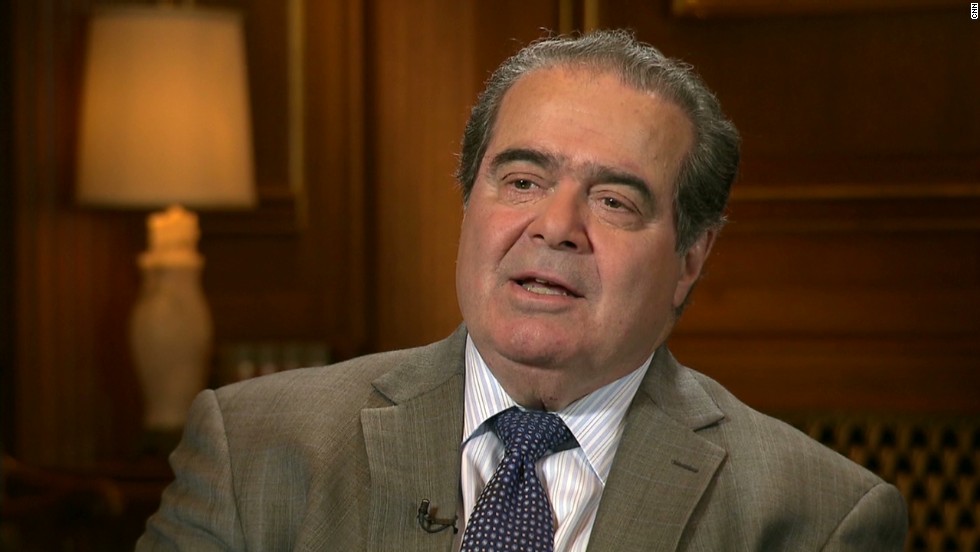By now the nine justices on the Supreme Court have reached their decision on the King v. Burwell lawsuit. It remains a secret until the court hands down its opinion in June.
The plaintiffs are four Virginia residents who have challenged the provision in the Affordable Care Act (ACA) that authorizes the Department of Health and Human Services to establish a Federal Health Care Insurance Exchange as a fallback for states that elected not to establish state exchanges.
If they prevail, an estimated 9 million Americans in 34 states that did not set up exchanges—in most cases because their governments objected to the ACA itself—lose the federal subsidies that make insurance coverage purchased on the federal exchange affordable.
If the Supreme Court rules against the Affordable Care Act, neither the Congress nor the 34 state legislatures that refused to create state exchanges can act in time to save the health care system.
The litigation’s perverse contradictions begin with the plaintiffs. To get standing to sue, their incomes had to be low enough to qualify for IRS tax subsidies provided through the ACA. Although they qualify, they do not want subsidies. Refusing subsidies, they claim they are illegally “coerced” into paying a small ($95) tax penalty for not buying insurance they cannot afford without subsidies.
Again, perverse.
If they prevail, more than 319,000 of their fellow Virginians will lose subsidies they currently receive. Absent the subsidies, they will probably be unable to afford health care coverage.
Another perverse contradiction. There is no state exchange in Virginia, because the GOP majority in the General Assembly refused to establish one, leaving those 319,000 Virginians to purchase health care coverage on the federal exchange. One logical resolution to the impending insurance crisis would be to allow voters in Virginia—and in the other states that have refused to set up exchanges—to go to the ballot box and oust the legislators who rejected a state exchange.
But the crisis is not political. It is actuarial. It is immediate. And it is much larger than Virginia.
“[A ruling for the plaintiffs] precipitates the insurance market death spirals that the statutory findings specifically say the statute was designed to avoid,” said Justice Sonia Sotomayor during oral arguments.
The “death spiral” begins with the mass cancellation of subsidized policies that will follow a ruling against the federal exchange. Only the sickest individuals, who dare not risk going uncovered, will remain insured. The departure of healthy individuals will drive premiums higher, which will encourage more and more people to pay the tax penalty rather than pay soaring insurance premiums.
The loss of an anticipated 9 million healthier individuals who purchased coverage through the federal exchange will reverberate through all the states until the entire insurance system is no longer viable.
Yet another contradiction was articulated by Justice Antonin Scalia. His questions in printed transcripts are always unequivocal. What one misses by not sitting in the courtroom is his anger, contempt for counsel with whom he disagrees, and rank sarcasm.
“What about, what about Congress?” Scalia asked. “You really think Congress is just going to sit there while all of these disastrous consequences ensue … Congress adjusts, enacts a statute that takes care of the problem. It happens all the time. Why is it not going to happen here?”
When Solicitor General Donald Verrilli responded, “Well, this Congress, Your Honor,” Scalia cut him off.
“I don’t care what Congress you’re talking about. If the consequences are as disastrous as you say, so many million people without insurance and what not, yes, I think this Congress would act.”
Justice Clarence Thomas claims he never reads a newspaper. (He also hasn’t asked a question from the bench since February 22, 2006.) Antonin Scalia is worldly, informed and engaged.
He was probably aware that exactly 29 days before the Court heard arguments on King v. Burwell on March 4, the Republican-controlled House voted to completely repeal the Affordable Care Act. If he missed that 239-186 vote, he must know something about the 59 House votes since 2011 that would have repealed part or all of the Affordable Care Act.
Even if the House were to decide to “fix” the ACA, which would require changing one dependent clause in a 2,700-page statute, it could not do so.
One week before oral arguments, House Speaker John Boehner was embarrassed by his own caucus when a bill he brought to the floor to fund the Department of Homeland Security for one week failed for lack of Republican support.
The Supreme Court decision that comes down at the end of next month is decisive and of enormous consequence. If a majority of the justices rule against the ACA, neither the Congress nor the 34 state legislatures that refused to create state exchanges can act in time to save the health care system.
Subsidies will end immediately.
And the death spiral will begin in July.
Lou Dubose is the editor of The Washington Spectator.





Scalia and his cohorts told the Senate they would NOT legislate from the bench if approved for a seat on the Supreme Court. Under oath). A charge of lying under oath should be filed and their removal from the court undertaken. Since this has been done by these justices numerous times, intent was obviously shown, which should subject them to penalties beyond simple removal from the Court.
\
The Court is supposed to be apolitical, isn’t it? The Congress in its present form will do nothing to correct the problem if the Court rules against the ACA. The insurance lobby will
just pour more $ into congressional campaign coffers. I’m sick of it!
It is in fact a political decision. Hopefully a majority will not agree, but many Justices obviously want the nearest thing to an equitable universal health system we can ever hope to get, to fail. This is not justice, it is doctrinaire politics. If the Plaintiffs prevail, 20 million or so will go back to the uninsured population, and the medical industrial complex will prevail. Hospitals and other providers that have in one year seen their “charity care” and other write-offs decline materially, will suffer.
The Court has rendered some crazy shit along
political lines, but this would be over the top.
The four Virginia residents, who are not harmed,
lack standing and provide an easy out for
several of the justices.
The insurance industry will be very upset, as the federal subsidies have given it millions of new customers for their highly deficient products!
Obviously Justice Scalia ‘s cadillac insurance paid by us will not be affected by death of ACA.